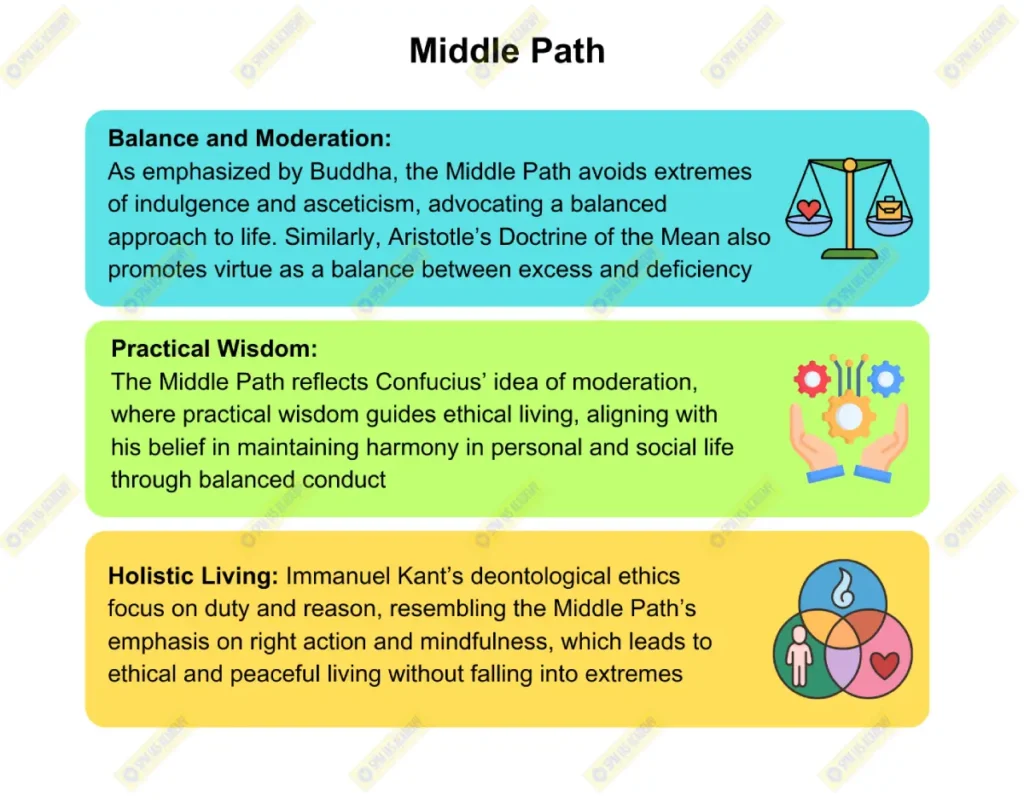In Buddhism, Compassion (Karuna) and Wisdom (Panna) are seen as two fundamental qualities that must be developed in balance for an individual to attain perfection or enlightenment. Compassion is the selfless desire to alleviate the suffering of others, while wisdom is the clear understanding of the nature of reality, particularly the impermanence and interdependence of all things.
1. Compassion (Karuna): Ethical Action and Empathy
- Karuna emphasizes empathy and the moral duty to act with kindness, understanding, and care toward others’ suffering. It drives ethical behavior and selfless service.
- Without compassion, wisdom may become cold and detached, lacking a moral grounding.
- Example: Mother Teresa’s work with the poor is an example of compassion in action, where empathy for others’ suffering was central to her life’s mission.

2. Wisdom (Panna): Insight into Reality
- Panna refers to insight into the true nature of existence, particularly the understanding of impermanence (anicca), suffering (dukkha), and the non-self (anatta).
- Wisdom ensures that actions are not just driven by emotional compassion but are also based on an understanding of the underlying causes of suffering, leading to more effective solutions.
- Example: Mahatma Gandhi combined wisdom with compassion through his understanding of non-violence and truth (Satyagraha), which shaped his leadership in India’s freedom struggle.
3. The Balance between Karuna and Panna
- Buddhism teaches that compassion and wisdom must be balanced for true enlightenment. Compassion without wisdom can lead to misguided actions, while wisdom without compassion can result in detachment and inaction.
- This balance aligns with Madhyama Marg (Middle Path), which encourages avoiding extremes and finding harmony in both thoughts and actions.
- Example: The Dalai Lama exemplifies this balance, advocating for peace and human rights with deep compassion, yet grounded in the wisdom of Buddhist teachings.
4. Philosophical and Practical Implications

- Philosophical Perspective: Immanuel Kant’s deontological ethics resonate with this Buddhist principle, as he argued that moral actions should be guided by both reason (wisdom) and duty (compassion).
- Practical Aspect: In governance, this balance reflects the ideal civil servant or leader who uses both empathy for public welfare and a rational understanding of policy consequences.
In Buddhism, the perfect individual is one who cultivates both compassion and wisdom equally. Compassion ensures ethical action towards others, while wisdom provides insight into the true nature of reality. Together, they form the foundation of a balanced, enlightened life, harmonizing ethical duty and understanding. This balance, essential for personal growth, is reflected in many philosophical traditions and continues to guide ethical conduct in various aspects of life.
Check out UPSC Coaching Centre Guwahati | APSC Coaching Centre Guwahati | Crack APSC Exam | UPSC Civil Services Exam | Ethics Paper in UPSC Exams











